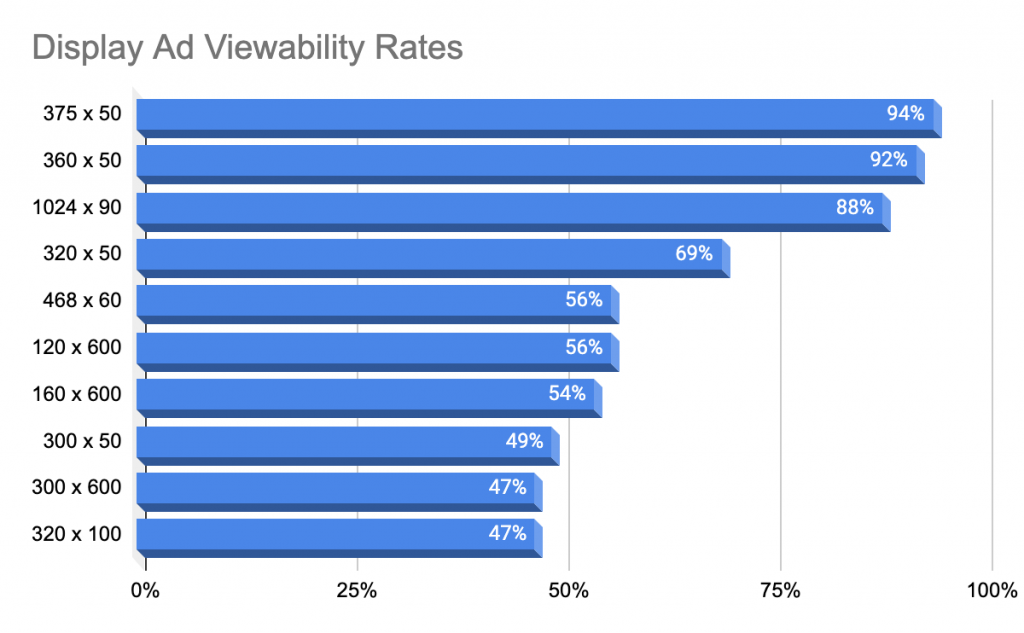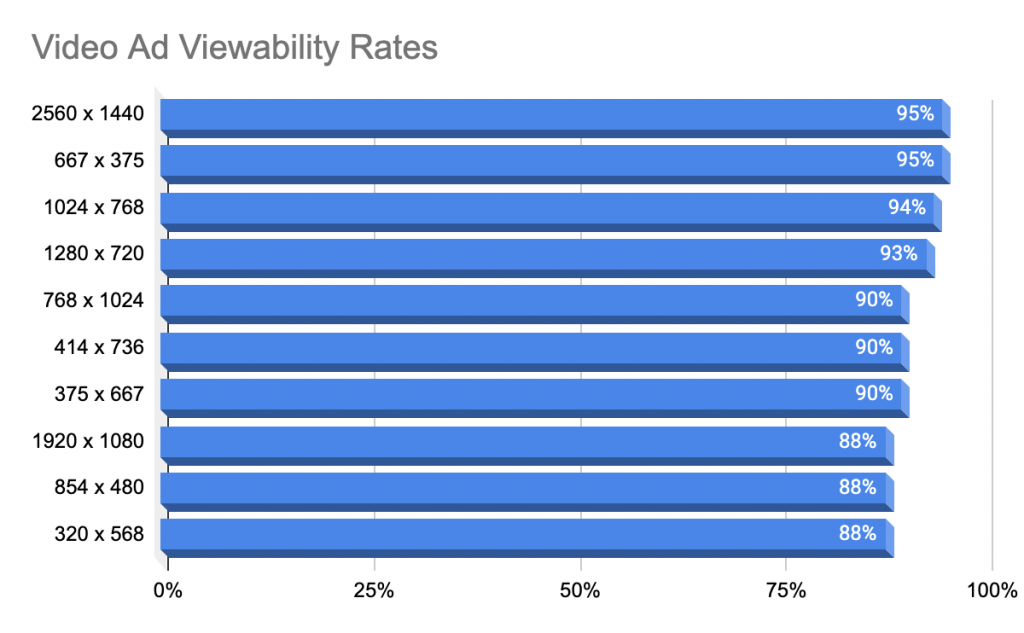Once you’ve been given access to Google Ad Exchange, you’re going to want as many people as possible to view the ads on your page. This is because the majority of the revenue that you’ll earn from AdX comes from your CPM (cost per thousand impressions). The term refers to the amount of money you make per thousand people who see your ad. For example, if your CPM is $1, and 100,000 people view an ad on your page per day, your net revenue will be $100 per day. Put simply, the more people who see the ads on your page, the more money you make. This is why ad viewability is a vital aspect of online advertising.
But what constitutes ad viewability? Google has specific criteria: a display ad is officially considered “viewed” when at least half of its creative set is seen by the user for at least one second. Video ads are considered viewed when half of them are in the user’s sight and playing for at least two seconds.
Google’s Active View: A Way to Measure Your Ad Impressions
As a publisher, it’s important to know how many ad impressions you’re getting from your page views. Thankfully, Google has developed a measurement tool called Active View. Active View is an indispensable tool for publishers: it is a Google technology that measures ad impressions in real time. It is integrated into every Google advertising product (AdX, AdSense, etc…) Using Active View will give you a clear understanding of your best performing ad units. With this knowledge, you can enhance your site’s ad experience by maximizing inventory that earns the most views.
Active View’s measurements are based upon three metrics, eligible impressions, measurable impressions, and viewable impressions. Below is a brief summary of each.
- Eligible impressions: any impression on your page that contains an Active View tag and is therefore eligible to be measured by the technology.
- Measurable impressions: the amount of impressions that were measurable by Active View out of the total number of eligible impressions. This should be close to 100%.
- Viewable impressions: the most important metric of the three: this simply refers to the amount of impressions that were viewable out of all measurable impressions. You are going to want to optimize your page to get the most viewable impressions.
Google’s own summary of Active View metrics can be found here.
How to Get More Viewable Impressions.
Now that you’ve got a basic understanding of how Active View works, you’re probably wondering what you can do to receive higher viewable impressions. We will go through a few easy ways in which you can get more people to see your ads.
- Ad Position: This may seem like a no-brainer, but a common error that new publishers make is not putting their ads in places that are immediately viewable to their users. For example, placing an ad “above the fold” (above the main content of the page) can significantly increase viewability, as users will always see the ad before reading the content of your page.
- Ad Sizes: Google has created a list of the most viewed ad sizes, found here. According to Google, “Large video players have significantly higher viewability, and vertical video units have above average viewability.” Below are detailed lists of both display and video ad sizes, ranked by their viewability.


Make your Ads Responsive
This is an absolute must for publishers. Currently, half of all internet traffic comes from mobile devices. Making your ads responsive means that they will be able to adapt to shifts in browser sizes.
For more insights and suggestions on Active View, how to optimize your site, or maximize your ad view ability, feel free to drop us a line at www.jfacassoc.com. Make sure to reference this blog post when asked how you found us.

